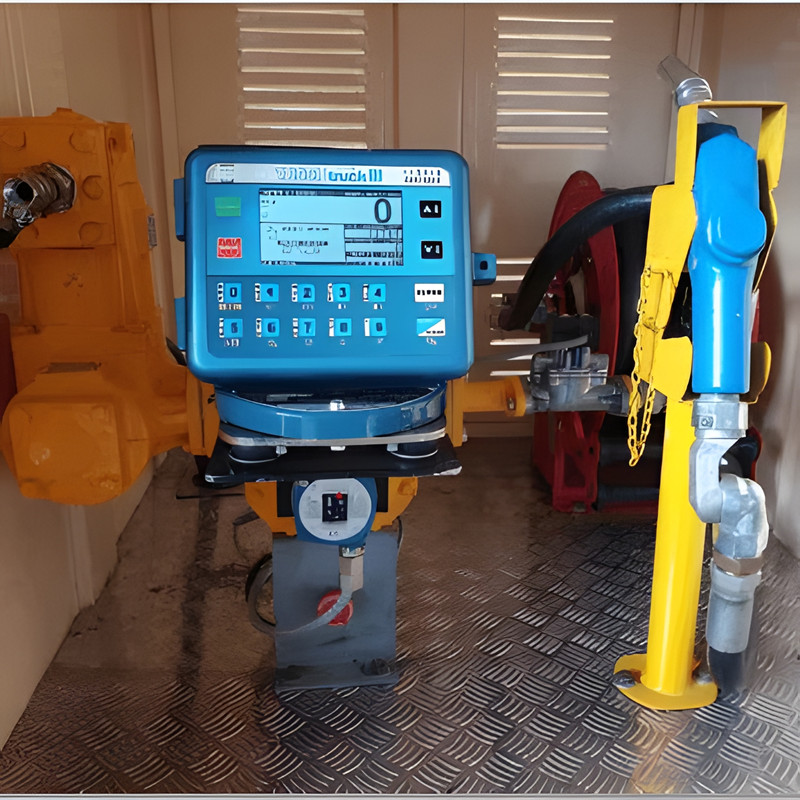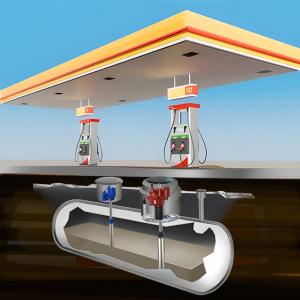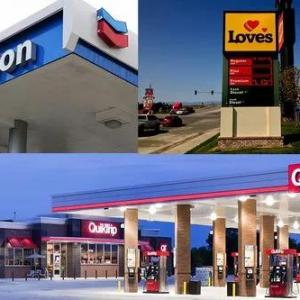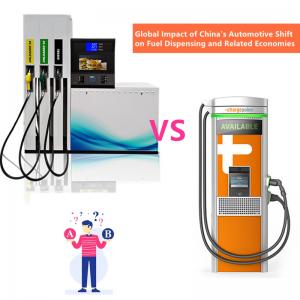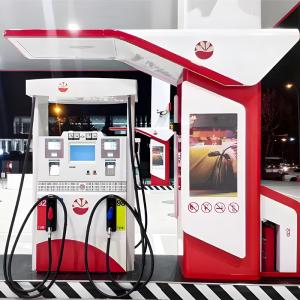Beyond Consumption: Smart fuel management systems for the mining industry
Beyond Consumption: How Smart Fuel Management Systems Balance Productivity and Sustainability in Mining
In the high-stakes, high-investment world of mining, heavy machinery forms the backbone of production. Diesel, in turn, is the lifeblood that powers these colossal machines. However, from procurement and transport to storage and final consumption, fuel management often remains a significant pain point for mining operations. Issues like fuel theft, loss, inefficient fueling, and data gaps are rampant, directly eroding profits and hindering productivity. Traditional fuel management methods simply can't meet the demands of modern, precision-driven mining.
This article will delve into the pivotal role of Fuel Management Systems in the mining industry. We'll explore how these systems leverage technology to provide mining companies with unprecedented visibility, control, and optimization potential. We'll break down the crucial components that make up an efficient system, integrating our core products: high-performance Diesel Pumps, precision Diesel Nozzles, and high-accuracy LC Positive Displacement Flow meters. We'll illustrate their indispensable value across the entire fuel supply chain, helping mining enterprises achieve genuine cost reduction, efficiency gains, and enhanced operational resilience.
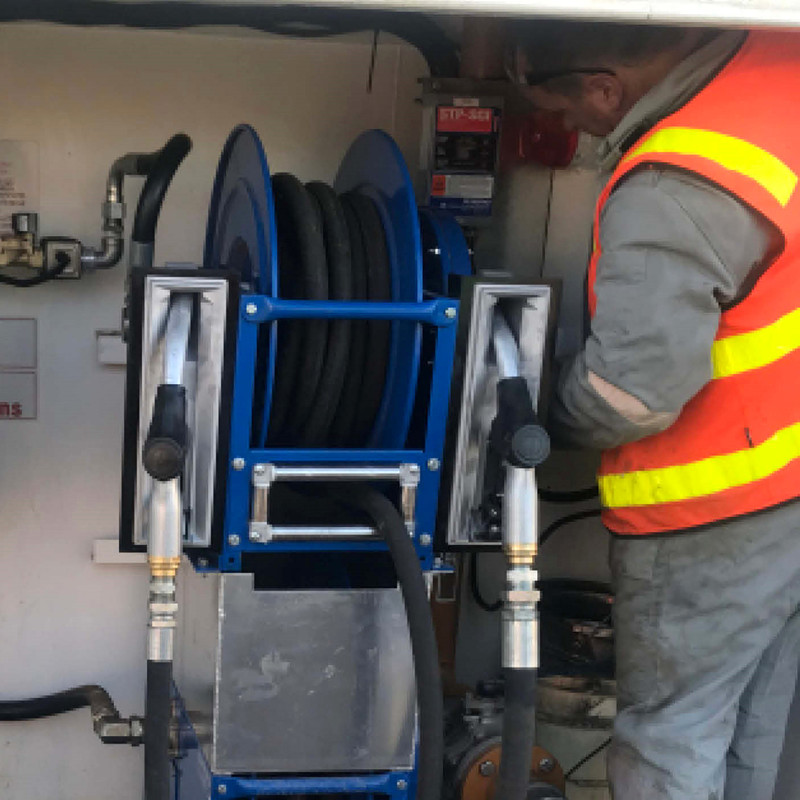
I. The Unique Challenges of Fuel Management in Mining
The complex operational environment of mining presents several distinct challenges for fuel management:
-
High Consumption and Costs: Mining machinery consumes vast amounts of fuel, with fuel costs often accounting for 30%-50% of total operating expenses. Even minor losses can result in substantial economic drains.
-
Remote and Harsh Environments: Mining sites are typically remote, with rugged terrain and variable climates, complicating fuel transportation and storage, and increasing safety risks and management difficulties.
-
Fuel Theft and Loss: The high value of fuel makes it an easy target for theft. Additionally, issues like spills, leaks, and inaccurate fueling lead to significant unrecorded fuel losses.
-
Data Blind Spots and Delayed Decisions: A lack of real-time, accurate fuel consumption data hinders efficiency analysis, optimization of dispatch, and effective anomaly tracking.
-
Compliance and Environmental Pressure: Fuel storage and waste disposal must comply with strict environmental regulations, with any violations potentially leading to heavy fines.
-
Equipment Maintenance and Lifespan: Fuel quality directly impacts engine performance and lifespan. Contaminated fuel or inefficient fueling practices can accelerate equipment wear.
Given these challenges, implementing a comprehensive, intelligent Fuel Management System has become an imperative for mining companies seeking to enhance their core competitiveness.
II. Core Components and Working Principles of a Fuel Management System
A comprehensive Fuel Management System integrates hardware and software for complete fuel lifecycle management.
Fuel Storage & Monitoring:
-
Storage Tanks: For bulk diesel.
-
Level Sensors: Real-time monitoring for levels and temperature, with alerts.
-
Leak Detection Systems: Ensure tank and pipeline integrity.
Fuel Delivery & Dispensing:
-
Diesel Pump: Transfers fuel efficiently from tanks to vehicles.
-
Key Role: Robust diesel pumps with high flow rates are vital for quick fueling and maximizing equipment uptime in harsh mining conditions. Our pumps are designed for reliability and efficiency.
-
-
LC Positive Displacement Flow meters: The "core brain" for precise fuel measurement.
-
Key Role: These meters offer exceptionally high accuracy (e.g., ±0.1%), eliminating losses from inaccurate measurement. They provide reliable data for cost control and theft prevention, maintaining precision despite fuel variations.
-
-
Diesel Nozzle: The final dispensing point.
-
Key Role: High-quality diesel nozzles ensure precise, spill-free, and safe fueling. Our nozzles are built for heavy machinery, featuring high flow, durability, anti-slip design, and automatic shut-off to prevent waste and accidents.
-
-
Vehicle Identification System: Automatically identifies vehicles and records fueling data.
-
Authorization Control: Restricts fueling to authorized personnel/vehicles.
Data Acquisition & Transmission:
-
RTU/Controller: Gathers and transmits data from sensors and meters to a central server.
-
Wireless Communication: Uses 4G/5G, satellite, etc., for real-time data upload from remote sites.
Central Management Platform (Software):
-
Real-time Monitoring: Comprehensive overview of all fuel activities and equipment status.
-
Data Analysis: Generates reports, trends, and anomaly alerts.
-
Inventory Optimization: Forecasts demand, optimizes procurement, and reduces inventory costs.
-
Dispatch Optimization: Improves fueling routes and times based on equipment data.
-
Permission Management: Granular control over fueling access.
-
Fault Diagnosis: Monitors components like diesel pumps and diesel nozzles, predicting issues and guiding maintenance. Precise flow meter data aids in early detection of abnormal consumption.
III. Core Value of Fuel Management Systems for Mining
Implementing an advanced Fuel Management System profoundly benefits mining operations:
-
Eliminate Fuel Loss & Theft: Precise metering from LC Positive Displacement Flow Meters links every fill to a specific vehicle/operator, eliminating "data black holes" and reducing theft. Real-time alerts flag anomalies.
-
Optimize Fuel Inventory & Procurement: Accurate forecasting based on historical data prevents overstocking or shortages, reducing costs and ensuring continuous supply.
-
Enhance Equipment Efficiency & Lifespan: Precise fueling with LC Positive Displacement Flow Meters and diesel nozzles prevents waste. Data analysis helps identify fuel quality issues. Efficient diesel pumps reduce machine idle time, extending equipment life and boosting utilization.
-
Strengthen Operational Insight & Decision-Making: Visual reports provide clear data. Precise cost accounting per equipment/shift aids budgeting. Analyzing fuel use alongside productivity optimizes vehicle dispatch and overall production.
-
Meet Compliance & Environmental Requirements: Automated records support audits. Leak detection helps prevent environmental damage and fines, reinforcing corporate responsibility.
IV. Choosing Your Fuel Management System
Selecting the right system and components is critical for mining. Consider:
-
System Integration: Ensure seamless compatibility with existing ERP or dispatch systems.
-
Data Security: Robust encryption and backup for sensitive fuel data.
-
Harsh Environment Adaptability: Hardware (especially diesel pumps, LC Positive Displacement Flow Meters, diesel nozzles) must be industrial-grade, dustproof, waterproof, and explosion-proof.
-
Metering Accuracy: LC Positive Displacement Flow Meters must offer certified, stable, high precision for accurate cost management.
-
Ease of Use & Maintenance: Intuitive interfaces and modular designs for easy operation and future upgrades.
-
Supplier Strength & Service: Choose experienced suppliers offering comprehensive support. Our high-performance diesel pumps, accurate LC Positive Displacement Flow Meters, and specialized diesel nozzles are engineered for mining's stringent demands, safeguarding your investment.
Conclusion: Smart Fuel Management, Mining's New Engine
In today's competitive mining landscape, a smart Fuel Management System is a strategic investment, transforming fuel management from a cost center into a value-generating profit center. By deploying reliable diesel pumps, precise LC Positive Displacement Flow Meters, and safe diesel nozzles, alongside an intelligent platform, mining operations can resolve fuel loss and theft, enhance equipment utilization, optimize costs, and significantly boost profitability. Investing in a Fuel Management System is investing in a more efficient, safer, and competitive future for your mining enterprise.

